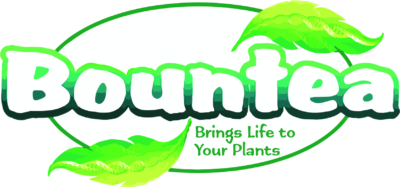When I teach a gardening class, I ask student gardeners to fill in my Gardening Resources Questionnaire. It examines the assets and challenges each person brings to starting and maintaining a garden. The first section is dedicated to Personal Resources: the intentions, knowledge and means available to you personally.
Here is that section. Fill it out and see how you measure up.
Gardening Resources Questionnaire
Evaluate the assets and challenges you experience in starting and maintaining your garden.
Grade each asset on a 5-point scale according to the scoring criteria: 5 – very strong; 4 – fairly strong; 3 – average; 2 – challenged; 1 – very challenged.
Personal Resources
How much time in your life can you realistically allocate to gardening?
Unlimited = 5. Weekends = 3. Restricted = 1
How much energy and physical fitness do you have for the work?
Very fit = 5. Disabled = 1.
How much money/budget can you allocate?
As much as needed = 5. No budget = 1
How strongly motivated are you to set up and maintain your garden?
Very strongly = 5. Just a little = 1
How much gardening knowledge and experience do you have?
10+ years = 5. 5 years = 3. 2 years = 2. None = 1
How much skill do you have in germinating and growing plants?
Bright Green thumb = 5. Brown thumb = 1
How much patience and perseverance do you have to tend your garden?
Lots = 5. Not much = 1
Add the asset scores to give you your Personal Resources Score out of a possible score of 35.
Scoring protocols for the Personal Resources Questionnaire
7 – 14 The Occasional Gardener: At the moment, you are not that involved in your garden – it is not your highest priority. Possibly, you put in a few tomatoes or bedding plants but it is a bit hit or miss whether they grow really well. Unless you have the time and resources, it may be better to work with small raised beds or container gardening. Put in an automatic watering system so it takes less time and buy some good organic compost each year. SuperStart for Plants is perfect to help you get the most out of those beds or containers. Sit back and relax.
14 – 21 The Aspiring Gardener: You feel you would like to garden more but you can’t quite get enough time or motivation to make it work really well for you. Look at your scores and find where you are most challenged. Do you need to take a gardening class? Do you need low cost growing methods? Is your time and energy limited? Start simply with a few easy-to-grow plants and vegetables: lettuce, tomatoes and beans.
Make a raised bed using the lasagna method, some Humisoil and SuperStart for Plants. Purchase some of the Gardening Expert books by D.G Hessayon. Decide when you are ready to take the next step and purchase the Bountea Brew Kit. Mostly, just start doing a little every day or so and enjoy yourself.
21 – 28 The Competent Gardener: You know what you are doing and you do it pretty well. Are you a bit stuck in a rut? Where are you not challenging yourself? Maybe you need to branch out a little: start seeds of different vegetable varieties each year; explore new techniques and ideas such as biochar and Terra Preta.
You should have your Bountea Brew Kit ready to hand and use the Bountea Better Bloom B3 on your peppers and tomatoes. Purchase the book Teaming with Microbes by Jeff Lowenfels so you understand the Bountea Growing System better. Remember, gardening is an endless journey.
28 – 35 The Dedicated Gardener: What can I say? You are doing what you love most, learning every day and finding satisfaction in the evolving development of your garden. Are you a member of a gardening group? Are you sharing your enthusiasm and expertise? Open your garden to the public once a year. Become an expert in one type of plant and its cultivation. Write a book, or at least a booklet.
Many dedicated gardeners upgrade to the 50-gallon Bountea Brewer and Bulk Refills — they save money and know Bountea is available when they need it. Gardening is to share the bounties of the Earth and with all humanity.
